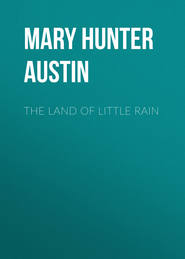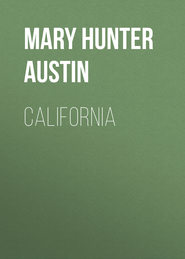По всем вопросам обращайтесь на: info@litportal.ru
(©) 2003-2024.
✖
The Lovely Lady
Настройки чтения
Размер шрифта
Высота строк
Поля
The symbol waved a deprecating hand. "You'll find it rather an occupation to keep up with Eunice, I'm thinking. I've a notion she'll go it, once she has the chance."
"If by going it, you mean going out a great deal, seeing the world and having it in to see her, well, why shouldn't she, so long as I have the price?" He could only take it good-naturedly. It was amusing when you came to think of it, that a man who would contribute to the sum of his wife's future perhaps, the price of a silver tea salver, should so hold him to account for it. Nevertheless the talk left a faint savour of dryness. It was part of his new pride in himself as a possession of hers that he should in all things come up to the measure of men, but the one thing which should justify his being so ticketed and set aside by them as the Provider, the Footer-up of Accounts, was the assurance which only she could give, of his being the one thing, good or bad, which could be made to answer for her happiness.
Walking home by the river to avoid as far as possible the baked, oven-smelling streets, he was aware how strangely the whole earth ached for her. He was here walking, as he had been since his first seeing her, at the core of a great light and harmony, and walking alone in it. If just loving her had been sufficient occupation for his brief courtship, for the present it failed him. For he was not only alone but lonely. He saw her swept aside by the calculating crowd—strange that Ellen and Clarice should be a part of it—not only out of reach of his live passion, but beyond all speech. Alone in his room he felt suddenly faint for the want of her. He turned off the light with which he had first flooded it, for the flare of the street came feebly in through the summer leafage, and sat sensing the need of her as a thing to be handled and measured, a benumbing, suffocating presence. As he sat, a sound of music floated by, and a thin pencil of light from a pleasure barge on the river flitted from window to window, travelling the gilt line of a picture-frame and the dark block of a picture that hung over his bed. And as it touched in passing the high ramping figure of a knight in armour, the old magic worked. He felt himself flung as it were across great distances, and dizzy with the turn, to her side. He was there to maintain in the face of all worldly reckoning, the excluding, spiritual quality of their relation. The more his engagement to Eunice Goodward failed of being the usual, the expected thing, the more authority it derived for its supernal sources. It took the colour of true romance from its unlikelihood. Peter turned on the light, and drawing paper to him, began to write.
"Lovely Lady," the letter began, and as if the words had been an incantation, the room was full and palpitating with his stored-up dreams. They came waking and crowding to fill out the measure of his unconsummated passion, and they had all one face and one likeness. Late, late he was still going on with it....
"And so," he wrote, "I have come to the part of the story that was not in the picture, that I never knew. The dragon is slain and the knight has just begun to understand that the Princess for whom it was done is still a Princess; and though you have fought and bled for them, princesses must be approached humbly. And he did not know in the least how to go about it for in all his life the knight could never have spoken to one before. You have to think of that when you think of him at all, and of how he must stand even with his heart at her feet, hardly daring to so much as call her attention to it. For though he knows very well that it is quite enough to hope for and more than he deserves, to be able to spend his whole life serving her, love, great love such as one may have for princesses, aches, aches, my dear, and needs a comforting touch sometimes and a word of recognition to make it beat more steadily and more serviceably for every day."
He went out that night to post his letter when it was done, for though there was not time for an answer to it, he was going down to her on Saturday, he liked to think of it running before him as a torch to light the way which, even while he slept, he was so happily traversing. He was quite trembling with the journey he had come, when on Saturday she met him, floating in summer draperies and holding out a slim ringed hand, and a cool cheek to glance past his lips like a swallow.
"You had my letter, dear?"
"Such a lovely letter, Peter, I couldn't think of trying to answer it."
"Oh, it wasn't to be answered—at least not by another–" He released her lest she should be troubled by his trembling.
"I should think not!" She was more than gracious to him. "It's a wonder to me, Peter, you never thought of writing. You have such a beautiful vocabulary." But even that did not daunt him, for he knew as soon as he had looked on her again, that loving Eunice Goodward was enough of an occupation.
V
The senior partner of Weatheral, Lessing & Co., was exactly the sort of man, when his physicians ordered him abroad for two years, with the intimation that there might even worse happen to him, to make so little fuss about it that he got four inches of type in a leading paper the morning of his departure and very little more. Lessing would certainly have been at the steamer to see him off, except for being so much taken up with adjustments of the business made necessary by Peter's going out of it; and his sister Ellen never went out in foggy weather, seldom so far from the house in any case. Besides, she declared that if she once saw Peter disappearing down the widening water she should never be able to rid herself of the notion of his being quite overwhelmed by it, whereas if he sent on his trunks the day before, and walked quietly out in the morning with his suitcase, she could persuade herself that he had merely run down to Bloombury for a few days and would be back on Monday. And having managed his leave-taking as he did most personal matters, to please Ellen, who though she had never been credited with an imagination, seemed likely to develop one in the exigencies of getting along without Peter, he had no sense of having done anything other than to please himself. He found a man to carry his suitcase as soon as he was out of the house, and walked the whole way to the steamer; for if one has been ordered out of all activity there is still a certain satisfaction in going out on your own feet.
It was an extremely ill-considered day, wet fog drawn up to the high shouldering roofs and shrugged off, like a nervous woman's shawl. But whether it sulked over his departure or smiled on him for remembrance, would not have made any difference to Peter, who, whatever the papers said of the reason for his going abroad, knew that there would be neither shade nor shine for him, nor principalities nor powers until he had found again the House of the Shining Walls. As soon as he had bestowed his belongings in his stateroom, he went out on the side of the deck farthest from the groups of leave-taking, and stood staring down, as if he considered whether the straightest route might not lie in that direction, into the greasy, shallow hollows of the harbour water, at the very moment when the Burton Hendersons, over their very late coffee, had discovered the item of his departure.
Mrs. Henderson balanced her spoon on the edge of her cup while her husband read the paragraph aloud to her.
"You don't suppose," she said, as if it might be an interesting even if regrettable possibility, "that I—that our affair—had anything to do with it?"
"If it did," admitted her husband, with the air of not thinking it likely, but probably served him right, "it has taken a long time to get at him. Two years, isn't it, since you threw him over for a better man?"
"Oh, I'm not so sure of your being a better man, Bertie; I liked you better–"
Mr. Burton Henderson accepted his wife's amendment with complacency.
"I don't believe Weatheral appreciated the distinction. Men like that have a sort of money crust that prevents the ordinary perceptions from getting through to them." This illustration appeared on second thoughts so illuminating that it carried him a little further. "Perhaps that's the reason it has taken him so long to tumble after he has been hit; it has just got through to him. It would be interesting to know, though, if he is still a little in love with you."
There was a fair amount of speculation in Mr. Burton Henderson's tone that did not appear to have its seat in any apprehension.
"Just as if you rather hoped it," his wife protested.
"Well, I was only wondering if his health is so bad as the papers say—it seldom is, you know—but if he were to go off all of a sudden one of these days, whether he mightn't take it into his head now to leave you a legacy."
"I don't believe it was personal enough with Peter for that. It wasn't me he wanted so much as just to be married. And, besides, I did come down on him rather hard." Mrs. Burton Henderson smiled a little reminiscently as if she still saw herself in the process of coming down on Peter and thought rather well of it.
"Well, anyway," her husband finished, "we could have managed with a legacy."
"Yes, we do need money dreadfully, don't we, Bertie?" she sighed. "But I don't believe I had anything to do with it."
That was all very well for Mrs. Burton Henderson, but Peter's sister Ellen had a different opinion. "Peter," she had said the evening after Peter had sent his trunk out of the house and locked up his suitcase to keep her from putting anything more into it, "you're not thinking of her, are you? You're not going to take that abroad with you."
"No, Ellen, I haven't thought of her for a long time except to wish her happiness. You mustn't let that worry you."
"Just the same," said Ellen, "if anything happens to you over there—if you never come back to me, I shall never forgive her."
"I shall come back. I am sorry you should feel so bitter about it."
He could not, especially now that it was gone, very well explain to Ellen about the House; for all the years that it had stood there just beyond the edge of dreams with the garden spread around it and a lovely wood before, she had never heard of it. There had been so many ways to it once, paths to it began in pictures, great towered gates of music gave upon its avenues, and if he had not spoken of it, it was because as he had made himself believe when she did come, that Eunice Goodward would come into it of first right. He could not have blamed her for not wishing to live in it—from the first he had never blamed her. He might have managed even had she pulled it about his ears to rebuild it in some fashion, but this was the bitterest, that he knew now for a certainty there had never been any House and the certainty made him ridiculous.
It had been rather the worse that, with all the suddenness of this discovery, he had not been able to avoid the habit of setting out for it, seeking in dreams the relief of desolation in knowing that no dreams could come. As often as he heard music or saw in the soft turn of a cheek or the slender line of a wrist, what had moved him so in hers he felt himself urged forward on old trails, only to be scared from them by the apparition of himself as Eunice had evoked it from her bright surpassing surfaces, as a man unaccomplished in passion, unprovocative. All the gates to the House opened upon dreadful hollows of self-despising into which Peter fell and floundered, so that he took to going that way as little as possible, taking wide circuits about it continually in the way of business, being rather pleased with himself when at the end of two years he could no longer feel any pang of loss nor any remembering thrill of what the House had been—until he discovered that also he could not feel some other things, the pen between his fingers and the rise of the stairs under him. He forgot Eunice Goodward, and then one day he forgot to go home after office hours, and they found him sitting still at his desk in the dark, trying to remember whether he ought to put down the blotting-pad and the paper weight on top of that, or if, on the whole, it were not better to put the paper weight, as being the heavier article, first.
It was after that the doctor told him to go as far away from his business as possible and keep on staying away.
"But if I am going to die, doctor," Peter carefully explained, "I would much rather do it in my own country."
"Ah," the doctor warned him, "that's just the difficulty. You won't die."
And that was how Peter happened to be leaning over the forward rail of an Atlantic steamer on his way to Italy, which he had chosen because the date of sailing happened to be convenient. But he knew, as he stood looking down at the surface of the water, rough-hewn by the wind, that whatever the doctor said to Lessing, or Ellen surmised, he would get no good there except as it showed him the way to the House of the Shining Walls.
He did not remember where in the blind pointless ring through which the steamer chugged and wallowed as though it were a superior sort of water beetle and the horizon a circle of its own making, he began to get sufficiently acquainted with his fellow passengers, to understand that they were most of them going abroad in the interest of unrealized estates, and abounded in confidence. To see them forever forward and agaze at the lit shores of Spain and the Islands of Desire, roused in him the faint savour of expectation. Which, however, did not prevent him from finding Naples squalid, and Rome, where he arrived in the middle of the tourist season, too modern in a cheap, second-rate sort of way. He could remember when Rome had furnished some excellent company for the House, and suffered in the places of renown an indeterminable pang like the ache of an amputated stump. It seemed, on occasion, as if the old trails might lie down the hollow of the Forum, under the arch of that broken aqueduct, beside the dark Volsinian mere; but when Peter arrived at any of these places he found them prepossessed by Germans gabbling out of Baedekers. The Sistine Chapel made the back of his neck ache and he came no nearer than seven tourists to the noble quietude of the Vatican can marbles.
"I must remember," said Peter to himself, "that I am a very sick man, and crowds annoy me."
Then he went into the country and saw the gray of the olives above the springing grass, like the silver bloom on a green plum, and began to experience the pangs of recovery. He found Hadrian's Villa and the garden of the Villa d'Este, and remembered other things. He remembered the flat malachite-coloured pools, the definite, pointed cypresses and the fountain's soft incessant rain—as it had been in the House. As it was in the House. For he understood in Italy what was still the most bitter to know, that though it might yet be somewhere in the world, he was never to find it any more. Toward all that once had led him thither, his sense was locked and sealed. He remembered Eunice Goodward—the fact of her—how tall she was as she walked beside him—but not how at the soft brushing of her hair as she turned, his blood had sung to her; nor all the weeks of their engagement like a morning full of wings. And he could not yet recall so much as the bare reasons for her break with him except that they had been unhappy ones.
It had been a part of a long plan that he and Eunice should have seen Italy together, but for the moment he did not wish her there. He was sure she would have been in the way of his getting something that glimmered at him from the coign of castellated walls all awash about their base with purpled shadow, that strove to say itself in intricate fine tracery of tower and shrine, and failed and fell away before the sodden quality of his mind.
So he drifted northward with the spring, and saw the anemones blowing and the bloomy violet wonder the world, suffering incredible aching intimations of the recrudescence of desire. Afterward he came to Florence, where he had heard there were pictures, and hoped to have some peace; but at Florence they were all too busy being painted or prayed to, the remote Madonnas, the wounded Saints, the comfortable plump Venuses; the lean Christs too stupefied with candle smoke to take any account of an American gentleman in a plain business suit, who looked homely and ill and competent. Sometimes in Santa Croce or in the long gallery over the bridge, the noise of the city would remove from him and the faces would waver and lean out of their frames, as if, had the occasion allowed, they would have said the word to set him on his way. But there was always a guard about or a tourist stalking some uncatalogued prey and it never came to anything.
"What you really want," said a man at his hotel to whom he had half whimsically complained of their inarticulateness—one of those remarkable individuals who had done nothing so successfully in so many cities of Europe that he was supposed to know the exact month for doing it most delightfully in any one of them—"what you really want is Venice. It's an off season there; you'll meet nobody but Germans, and if you go about in your own gondola you needn't mind them."
So Peter went to Venice, and on the way there he met the Girl from Home.
VI
He knew at once that she was from Home, though as she sat opposite him with the fingers of her mended gloves laced under her chin and her face turned away to miss no point of the cypresses and warm, illumined walls, there was nothing to prove that any one of a hundred towns might not have produced her. Peter remembered what sort of people wore gloves like that in Bloombury—the minister's wife, the school teacher, his mother and Ellen—and was instantly sure she would not have been travelling through Italy first-class except at the instigation of the large, widowed and distrustful woman with whom she got on at Padua. This lady, also, Peter understood very well. He thought it likely she sat in rocking chairs a great deal at home and travelled to improve her mind. She had, moreover, a general air of proclaiming the unwarrantableness of railway acquaintances, which alone would have prevented Peter from asking the girl, as he absurdly wanted to, if they had painted the new school-house yet, and if there had been much water that year in Miller's pond.
As she sat so with her round hat pushed askew by the window-glass, there was some delicate reminder about her that streaked the rich Italian landscape with vestiges of Bloombury.
He looked out of the window where she looked and saw the white straight-sided villas change to green-shuttered farmhouses, and fine old Roman roads lead on to Harmony. It was all there for him in its unexpectedness, as freshly touching as those reminders of his mother which he came upon occasionally where Ellen kept them laid by in lavender; as if the girl had shaken from the folds of her jacket of unmistakable Bloombury cut, Youth for him—his own—anybody's Youth—no limp and yellowed keepsake, but all crisply done up and ready for putting on. So sharp for the moment was his sense of accepting the invitation to put it on with her as the best possible traveller's guise, especially for seeing Venice in, that catching the speculative eye of the large lady turned upon him, he quailed sensibly. She had the air of having detected him in an attempt to establish a relation with her companion on the ground of their common youngness, and finding herself much more a match for him both in years and in respect to their common origin. Whatever passed between the two women, and something did pass wordlessly, with hardly so much substance as a look, remained there, not intrusively, but as proof that what he had been seeking was still going on in some far but attainable place. It was the first movement of an accomplished recovery, for Peter to find himself resisting the implication of his appearance in favour of what was coming to him out of the retouched, sensitive surfaces of his past.
He knew so well as he looked at the girl, what had produced her. She was leaning a little from the window in a way that brought more of her face into view, and though from where he sat Peter could have very little notion of the points of the nearing landscape, he knew by what he saw of her, that somewhere across the low runnels in the windy reeds she had caught sight of the "sea birds' nest."
He did not on that account change his position so that he might have a glimpse of the dark hills of Arqua or the towers of Venice repeating themselves in the lustrous, spacious sea. Sitting opposite the girl, he saw in her following eyes the silver trails of water and the dim procession down them of old loves, old wars, old splendours, much better than the thin line of the landscape presented them to his weary sense. He leaned back as far as the stiff seat allowed, watching the Old World shine on her face, where the low light, striking obliquely on the water, turned it white above black shoals of weed. For the first time since his illness his mind slipped the leash of maimed desire, and as if it parted for him there beyond the window of the railway carriage, struck into the trail to the House. The walls of it rose up straight and shining, gilded purely; the windows arching to summer blueness, let in with them the smell of the wilding rose at the turn of the road and the evening clamour of the birds in Bloombury wood.
All this time Peter had been sitting in an Italian railway carriage, knee to knee with a pirate bearded Austrian Jew who gave him the greatest possible occasion for wishing the window opened, and when the jar of the checked train drew him into consciousness again, he was at a loss to know what had set him off so far until he caught sight of the girl. She was buttoning on her jacket with fingers that trembled with excitement as she constrained herself to the recapitulation of the two suitcases, the hat box and three parcels which her companion in order to have well in hand, had been alternately picking up and dropping ever since they sighted the tower of San Georgio dark against the sea streaked west.
"Two and one is three and three is six and the 'Baedeker' and the umbrellas," said the girl. "No, I don't have to look in the address book. I have it by heart. Casa Frolli, the Zattera." Then the roar of the train split into the sharp cries of the facchinos that carried them forward like an explosion into Venice as it rose statelily from the rippling lustre. Around it wove the black riders with still, communicating prows, so buoyant, so mysteriously alive and peering, like some superior sea creatures risen magically from below the frayed reflection of the station lights. Much as Peter felt that he owed to the vivid presence of the girl, his new capacity to see and feel it so as it burst upon them, he hadn't found the courage to address her. So it was with a distinct sense of deprivation that he saw her with her companion grasping the side of the gondola as if by that method to keep it afloat, disappearing down the dim water lanes in the direction of the Zattera.










